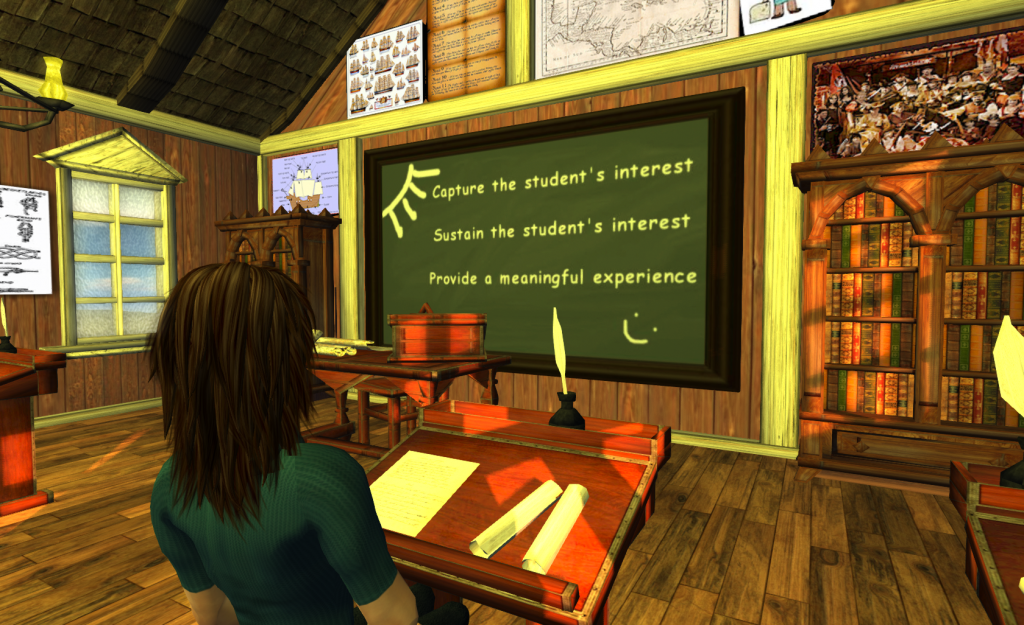As adults we have so many things competing for our time – kids, work or school, significant others, hobbies, extended families, and friends. So even though there’s an enormous amount of online learning material and educational opportunities the challenge is finding the time in our busy lives to take advantage of it all. And even if we make a decision to take a class, we might not maintain that commitment if the class does not meet our level of expectations. In order to keep us interested and carry us to a successful completion, a class needs to grab and maintain our attention, add value and meaning to our lives, and leave us with a sense of accomplishment.
Therfore, those who prepare classes for professionals in public works, engineering, or government need to:
Create classes that capture professional interest. Topics should be relevant to work-related challenges and tasks. I’d probably sign up for “Design and Construction of PVC Water Mains,” but I am not going to sign up for “Preventing Blood Incompatibility Errors.”
Sustain interest by designing class resources and course work to match the skills and learning type and ability level of professionals interested in that topic. A class for engineers about designing and constructing water main might offer a few modules that introduce and explain engineering formulas and theory for strength and hydraulics. The content and work required for this topic would meet the expectations and abilities of engineers. But these modules most likely would not interest a non-engineer who is tasked only with the installation of water main. That type of student probably would not be interested in reading or listening to engineering theory behind water main design and would not want to perform engineering calculations.
Provide a meaningful and personally relevant experience. Someone taking the time to go through a class will want to have a sense of accomplishment or achievement upon its completion. A course that walks an apprentice operator through the function and controls of a backhoe should prepare that person so upon its completion the operator can successfully understand and perform the functions taught in the class. If the class leaves them confused and unable to act upon or understand anything taught, the operator will perceive his time as wasted.
So how can we use this information to improve our learning experiences? When we consider training for ourselves or for our staff, we can check to make sure the classes meet these three requirements. If it is not obvious from the course description, we can also ask past attendees or students if they felt a specific class held and sustained their interest and left them with a sense of accomplishment. And if we are delivering or creating classes in our field, we should be asking ourselves these questions throughout the process. In evaluations we can also ask students questions like: what could be changed to make the class more interesting and relevant? and what other activities or approaches might better hold your interest?





Training needs to be dynamic! Offering training on basic computer operations to a group of Microsoft programmers probably doesn’t make any sense but offering the training to group of senior citizens who are true Luddites…
If the “training dept” waits until students are in the class to evaluate the training WAY TOO late…. Evaluation can and IMO should start when the discussion starts about training requirements…
Another GOTCHA is the way that some organizations try to fit everyone into the nice square box and assume that everyone will benefit from the same training delivered in the same format
Excellent points, Pam. While I can’t speak for other organizations and agencies, at my agency, we definitely do have a problem with “one size fits all” training. Everyone receives the same computer guided training modules, whether you are a scientist, administrator, technician, or safety officer. As a result, a lot of the training is very general and not specific enough to capture professional interest. This leads to a state of mental disengagement from the training before you’ve even started. I love the idea of professionally relevant training- perhaps agencies could actually offer a choice to employees in terms of which training sessions they could take to satisfy training requirements (something like a “please choose three modules from the list below…”). Not only would this make the specific topics more relevant to each trainee, but this process would also engage the employee up front in that they have to choose their own training agenda. Is there anyone out there already implementing this kind of system?
Thanks Erica and Henry for your thoughts – Unfortunately I am not aware of any training format other than this 3D Game Lab that encourages a dynamic and flexible development approach for education.
The software has been in beta for a couple years and will be released this year through a subscription plan that allows teachers to develop classes. I’ve been working with it during the beta and have been creating a class in stormwater. So I will continue to develop that resource then move onto adding other classes on topics in my field. Perhaps other professionals will eventually become interested in 3D Game Lab and create classes in other fields too. Right now most of the educators using it are K-12 teachers.
I suppose a teacher/trainer could develop modules without the software, but the 3D Game Lab framework makes it so easy to implement that kind of training.